Competence and Compassion
By Riya Desai
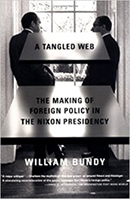
John Dumbrell
John Dumbrell is a well-educated and knowledgeable person who is a professor of Government in the School of Government and International Affairs at Durham University in the United Kingdom. He has a Ph.D. on presidency of Richard Nixon and also has studied through many documents and has attended many conferences about Jimmy Carter.
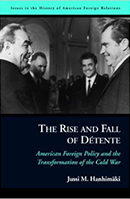
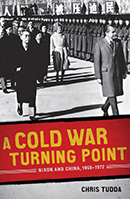
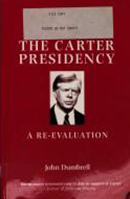
During the 1970s there were many major events that occurred in the different presidencies, but the Carter presidency stood out in the major achievements. Even though many people consider Jimmy Carter to have not done anything too significant, he actually had many achievements that get overlooked by the masses. In the book The Carter Presidency: A Re-evaluation by John Dumbrell, Dumbrell emphasizes the fact that the main motto of the Carter presidency is “competence and compassion”.1 Carter was a president that still kept the fort down and maintained the country in a time of disparity because of the previous Watergate scandal. Since Carter became president in the late 1970s he was still a Democrat and had strong rules and liberal ideals.
In the beginning of this work, Dumbrell begins with the idea of competence and compassion, which were the ruling ideals that Carter worked into his presidency. By competence, Carter meant that he wanted to make sure to get the job done, but he wanted to make sure that he was compassionate and relatable to the people while doing his job. Because of his democratic background, Carter used Jeffersonian and Hamiltonian values and brought a restoration of democratic balance between republican virtue and efficiency. He also made sure to end the big spending and unrestrained use of American power abroad. In order to give anti-communism a new face, Carter said that the United States was fighting for human rights instead of being anti-communist. Because of some of these policies and ideals some members of the administration resigned from their position such as Bert Lance who was the director of Office of Management and Budget as well as Kenneth Curtis the Democratic National Chairman. Even with these resignations and the coal strikes, Carter still held strong to his philosophy and stood for what he believed what would resolve the United States. Additionally, some of Carter’s major achievements include establishing diplomatic relations with the People’s Republic of China, establishing SALT II negotiations, and the Camp David Accords.2 With the Carter presidency, the people of the United States identified the country as standing for social and political justice. Also even though Carter was a liberal in many matters such as civil rights, environment quality, and helping people overcome handicaps to lead fruitful lives, he was still conservative when it came to fiscal activity. Carter believed that each member of his cabinet was a spoke in a wheel, even though many of the cabinet members were pursuing programs and goals independent of each other and oblivious to the political interrelationships of their programs. In order to make the government diverse, the “special pleaders”, people of all races and sexes, were let into the government. Even though Carter was criticized for not acting as a leader figure, he was the only president who was able to work well with his team and have a good relationship with the Vice-President.
In addition to all of the Carter’s other achievements, he played an active role in domestic human rights. First of all, the Carter presidency was a time when women’s rights had a lot of success since at this time including 1977 Protection of Children Against Sexual Exploitation Act and 1978 Child Abuse Prevention Act.3 Carter strongly believed that Americans are a part of a great movement of humanity and wanted to help restore a sense of national purpose. More women also received the opportunity to be a part of the administration. Carter also added “Family” as one of the priorities of the government and also was in support of the amendment to legalizing abortion. Carter was also very involved in lobbying for the Equal Rights Amendment. During this time women pushed to be promoted to higher paying elite positions in the administration because even though more women held jobs at this time, there was a small percent that held the higher positions. Another major form of rights that Carter fought for were black civil rights. Since desegregation happened, the South modernized which gave Carter a chance at becoming president and since the blacks from the South supported Carter immensely, Carter was able to secure the position of president. Blacks were also able to secure jobs in the administration along with the women to fight for civil rights, but there was a lot more criticism of the blacks in the government than for the women. Some major acts that passed for African Americans were the 1978 Omnibus Minority Business Act that supported the ‘set- aside’ principle and the Humphrey-Hawkins Bill to give blacks equal opportunities at jobs as long as they were able and willing. Some other major issues included desegregating public schools and colleges and universities as well as actions for anti-poverty and employment. These were the major things that Carter was able to achieve for domestic human rights until he started looking out to the other countries of the world and bringing a similar type of aid to them.
To extend the same sense of a fight for human right to the international world, Carter tried to get rid of communism by saying that he was fighting for human rights. With the Trilateral perspective, he pushed for inter-capitalist co-operation, especially between the United States, Japan, and western Europe.4 The Nixon-Kissinger-Ford foreign policy, which supported a decline in the United States involvement in the interdependent world, was a major factor in the creation of Carter’s foreign policy. With the 1975 Helsinki Final Act and the Universal Declaration made it an international law that human rights include integrity of the person, the right to fulfillment of such vital needs such as food, shelter, health care and education, and civil and political liberties. Since northern Ireland was having problems with human rights Carter wanted to express this document to Prime Minister James Callaghan of northern Ireland, but the state department was not sure if the United States should intervene with Irish affairs. Furthermore, Carter wanted to think of a foreign policy based on ideals of global community and international independence that still stood for human rights. Carter felt that intervention in Nicaragua would be a good idea to spread his foreign policy, but it only resulted in lengthening the time of the civil war since there was a mixture of brutal dictatorship and dynastic opportunism. Another example of American intervention is in Iran after the Iranian Revolution ended because of the hostage crisis. After a long time of hardship, the hostages were finally released. Both of these incidents reflected the limits of human rights policies and the strong hold of past commitments.
When Carter finally started creating the Carter Doctrine from what he believed in, he realized that even though he urged for equal human rights, the amount of the rights are relative to the area of the world and it is not possible to have the exact same amount of rights in all places in the world. The policy was judged by the origins and motivation, success in achieving fairness and consistency, balancing, means, relationship between human rights and national security and does it alleviate human misery.5 Even though the United States was promoting such values, the still supplied repressive regimes such as Indonesia and Brazil. One major reason for crating this policy was to ease the executive decision-making process. Since Carter had control of the CIA, he was able to make this foreign policy quite easily. Overall the Carter doctrine contains the ideas of containment and also says that the United States needs to take a stand against the Soviet Union. Carter’s main goal during his presidency was to create a post-Cold War global community and unite the world and he tried to make this a possibility by restoring the integrity to the social security system, increasing incentive for the production of fossil fuels that would help conservation, resolving the energy crisis, solving problems with inflation and recession, and a major commitment to competence and compassion.
The author’s, John Dumbrell’s, purpose in writing this book was to inform the public about the beneficial things that Carter accomplished without getting much credit for it. He believes that Carter was a great president even though he faces many problems he was able to work through them and find a resolution. Even though Carter faced many situations, but still pulled through such as the energy crisis, issues with foreign nations such as Nicaragua, Iran, Northern Ireland, and the Soviet Union.6 These events gave his the experience that helped him mold the Carter Doctrine to fit what the world actually is. Carter started with an ideal in the beginning but through his presidential journey had to modify parts of it to fit the reality of the world. Dumbrell believes that Carter evolved through his presidency and that he had to modify his ideals to fit to the expectations of the world. Even though Carter’s foreign policy was on the weaker side according to Dumbrell, he was a lot more successful in his domestic reforms especially women’s rights and black civil rights. Even though Carter had some failures, overall Dumbrell believes that Carter was a pretty successful president with his circumstances.
John Dumbrell is an extremely knowledgeable author and has a Ph.D on the Presidency of Richard Nixon from Keele University. He currently is a Professor at Durham University in the United Kingdom and is a Professor of Government in the School of Government and International Affairs. He also is a former chair of the American Politics Group of the Political Studies Association and a co-editor of the Routledge book series, Studies in US Foreign Policy. Recently, Dumbrell has written a book about the Vietnam War titled, Rethinking the Vietnam War, which analyzes different interpretations of the war. Another topic of study that Dumbrell is extremely fascinated by is Jimmy Carter’s human rights policy, which makes up a majority of this work. Carter was extremely involved in making sure that there was a, “Congressional human rights lobby… to institutionalize the cause of human rights within the executive decision-making process.”7 Additionally, this book was published in 1993 and according to this time period the general attitude toward the 1970s was that the 1970s were too liberal. With the more current conservative ideals, Dumbrell looked back at Jimmy Carter’s presidency and thought that overall Carter was too liberal in some aspects. Dumbrell actually was glad that Carter was a fiscal conservative and was only liberal in domestic matters that needed reform.
Samuel B. Hoff of Delaware State University reviewed this novel and said that Dumbrell analyzed the Carter presidency through the eyes of those that criticize Carter. Hoffe also says that this book points out the opposing views about Carter’s accomplishments and points out the problems with organization and early failures with bureaucratic experimentation and ideological diversity, which results in decentralization and fragmentation of the congressional authority. Even though Carter sets high goals making the people of the country have high expectations, he is not able to fulfill them. Some of Carter’s biggest achievements were appointing a large number of women to government positions and supporting the Equal Rights Amendment.8 Carter’s desire for the pursuit of human rights represents his religious beliefs and American values. When Carter tried to apply this policy to four countries he was not successful because each country has their own laws and one policy does not fit all circumstances. All of these events shaped the Carter Doctrine. According to Hoffe, this book is a revisionist novel but the description of Carter’s foreign policy is completely accurate. Even though the format of this book is somewhat confusing, Dumbrell used matter discussed in a conference about the Carter presidency and various papers about this subject to create this novel that proves that as time goes on reflections about the past are always changing.
Another review about this novel by John Dumbrell is by David Mervin from the University of Warwick. Mervin believes that Dumbrell has an extremely accurate portrayal of the Carter presidency. He believes that this work is well written and was created after careful research. Carter was “one of the brightest and most honorable men ever to have served in the White House” and his administration was clean of any scandals.9 Still, Carter received a lot of criticism for his work with the energy crisis and the hostage crisis. Because of the mood of cynicism and disillusionment made by the Watergate Scandal of Nixon, people were more critical and distrusting of the president, which led to this mass of criticism. Overall, Mervin believes that this book is a great addition to everyone’s understanding of the Carter presidency.
This novel was extremely knowledgeable about the Carter presidency. Even though it contains biased opinions, it was still great to learn about how much Carter cared about women’s rights and African American rights even though he came from the south. Also I was excited about the fact that he believed in competence and compassion because when presidents show how much they care about the people the more relatable they are.10 Jimmy Carter is super underrated even though his personality and character was impeccable. Even though Carter had some failures in applying his foreign policy to foreign countries, he learned from his mistake and in the end modified his policy when he created the Carter Doctrine. His ideas regarding competence and compassion were extremely appealing, but also his idea to make his foreign policy about the spread and fight for human rights instead of a fight against communism was a great idea. Instead of fighting against something, when one fights in support for something, then they are able to rally up more support from the people because it sounds like a positive cause. This book was a great portrayal of the Carter presidency since it included some of both good and bad things that Carter did.
John Dumbrell’s stance on the 1970s being a time of severe crisis in the United States is that he believes that this time had a lot of crisis, but as the decade ended, there were fewer failures. Even though the beginning of the 1970’s included many problematic events such as the Watergate scandal, under Carter the only major problems were the energy crisis and the hostage crisis.11 Carter was the president to end the energy crisis since he issued the Camp David Accords, which led to a peace treaty. As time went on in this decade things got better. The author does not portray the 1970s as a continuation of the 1960s much because, Dumbrell only states that Carter wanted to end the Cold War struggles and bring peace to the world. Although on example of continuation is that birth control was legalized in the 1960s and Carter was able to continue the women’s rights movement into the 1970s. One major difference is that during the 1960s the Cold War was still a large part of the United States foreign involvement, but in the 1970s the foreign policy was more about bringing peace and had to do with more countries than just the Soviet Union. These were the major goals during the Carter presidency.
The Carter Presidency: A Re-Evaluation by John Dumbrell gives an in depth explanation of all the successes and failures of the Carter presidency. The major points were about the motto of “competence and compassion” and Carter was also involved and believed strongly in domestic and well as international human rights.12 Because of Carter’s strong beliefs and successes in domestic affairs, he is a pretty successful president.
Footnotes:
- Dumbrell, John. The Carter Presidency. Manchester: Manchester University Press, 1993.1.
- Dumbrell 6
- Dumbrell 65
- Dumbrell 111
- Dumbrell 184
- Dumbrell 150
- Dumbrell 180
- Dumbrell 65
- Mervin, David. “The Carter Presidency: A Re-evaluation. By John Dumbrell.” Rev. of The Carter Presidency: A Re-Evaluation. Manchester University Press n.d.: n. pag. Web.
- Dumbrell 1
- Dumbrell 37
- Dumbrell 1

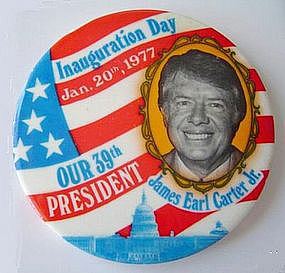
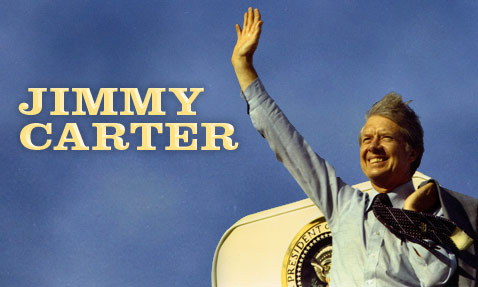
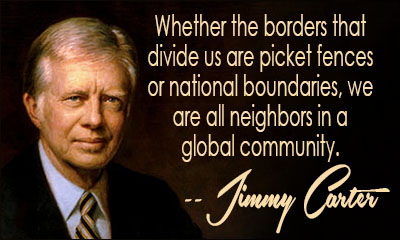
1 - 4
<
>